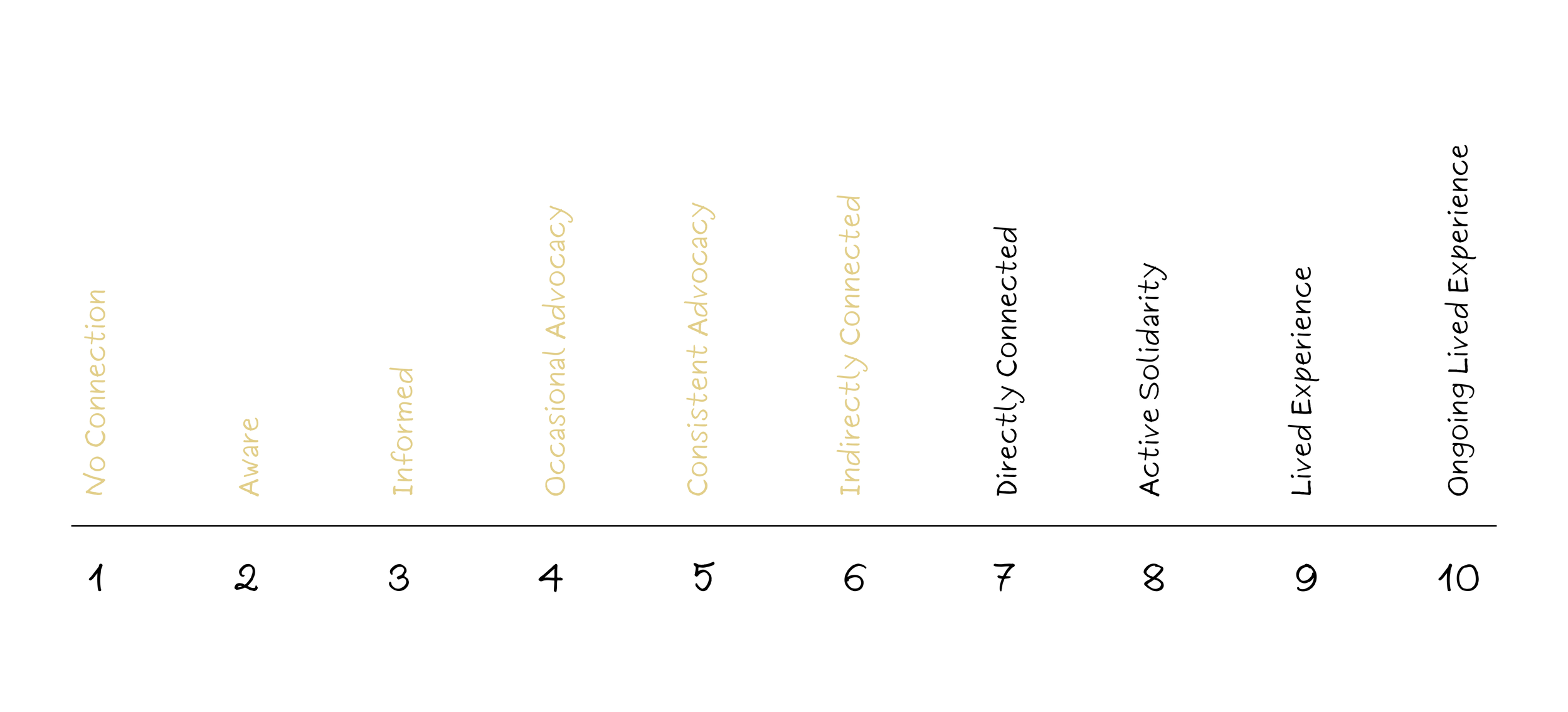From Awareness to Action: Deepening Your Connection to Social Issues
If you’re like me, you care about a lot of things – and all at once.
Reading the news: the genocide in Gaza, the breakdown of democratic norms, local elections, climate change.
Talking with family and friends: checking in on health, changes in jobs and careers, maintaining connections across distance.
Finances: how to save for a trip, how much can I give away, starting a college fund for the kiddos, “oh yeah – we should have an emergency fund...”
There is a lot going on – and we have to care about a lot of things in order to survive, let alone thrive.
So when a situation pops up that I want to take action on, whether it’s in the news, here in my city, or in my family life, one of the questions I use to guide my next steps is this:
How intimate are you with this issue?
Because I’ve noticed that over the long-haul, if my commitment and approach to change-making tends to wane, it’s often not because I’ve stopped caring, but because I don’t have enough intimacy with the issue I’m attempting to address.
Does this feel familiar?
The issue doesn’t impact us closely enough; we don’t personally know anyone in harm’s way; we are protected from it; we don’t feel its visceral nature.
(This is especially true, in my experience, for educated, middle/upper class liberals: we can at times mistake having an intellectual understanding of an issue for an embodied experience of an issue. The danger here is that intellectualism can allow us to “say the right thing” from afar, when it’s convenient, rarely putting our bodies, time, money, energy, and reputation on the line.)
But it’s when we have – and work to increase our – intimacy with an issue and the people being harmed that we enhance our effectiveness in making change in a sustainable, relational, and dignity-centered way.
It’s intimacy that develops our capacity for resilience.
The following exercise from the Gentle Change Starter Kit is a simple little tool I first designed to help myself think through how intimately connected I was to a particular issue. I hope it's helpful 🙂
Take a moment and bring one issue you care about to mind.
Using the intimacy scale below, identify the presence of this issue in your life, based on how intimate or proximate it is to you. This is not meant as a shame-based tool, but a way of bringing awareness to our connection with what we say we care about.
No Connection: No knowledge of or experience with the issue.
Aware: Basic understanding through media or conversation.
Informed: Actively seeking information through books, articles, or other media.
Occasional Advocacy: Advocating in low-risk ways, without contact or relationship with those directly impacted.
Consistent Advocacy: Regularly engaged in activism, without contact or relationship with those directly impacted.
Indirectly Connected: Have, or have had, an acquaintance who is directly impacted.
Directly Connected: Have a friend or family member directly impacted.
Active Solidarity: Regularly engaged in activism, led by those directly impacted.
Lived Experience: Personally impacted by the issue.
Ongoing Lived Experience: Currently being personally impacted.
If you end with a low-intimacy score below 7, that’s okay! We all have issues we’re more intimate with than others. But if you want to become more intimate with this one, here are some reflection questions you might find value in working with:
Where does my interest or passion for this issue come from? What is my “origin story” as it relates to this issue?
If you feel you “don’t have time” to become more intimate with this issue, take an honest look at what you are prioritizing above it. Do your actions match your desires? And if you truly are at capacity with time, energy, etc.: what is the most consistent action you might be able to take within your constraints?
How is it that I have low intimacy with this issue? What aspects of my life and privilege have allowed for me to have distance from this issue?
How have I played a part in perpetuating or benefiting from the existence of this issue?
What actions can I take to move toward Active Solidarity in the coming weeks? (This doesn’t necessarily mean to jump straight to it if you’re in Occasional Advocacy or elsewhere. Brainstorm what a gentle change that’s directionally aligned could look like.)
What am I willing to sacrifice in order to increase my intimacy with this issue and the people who are being harmed?
What am I unwilling to sacrifice?
At the end of the day, it probably shouldn’t be anyone’s goal to become more intimate with every issue we care about.
Instead, this is an invitation to focus on one issue and go deep with it in a real, relational way. (I’ve written more about the importance of focusing our action here.)
